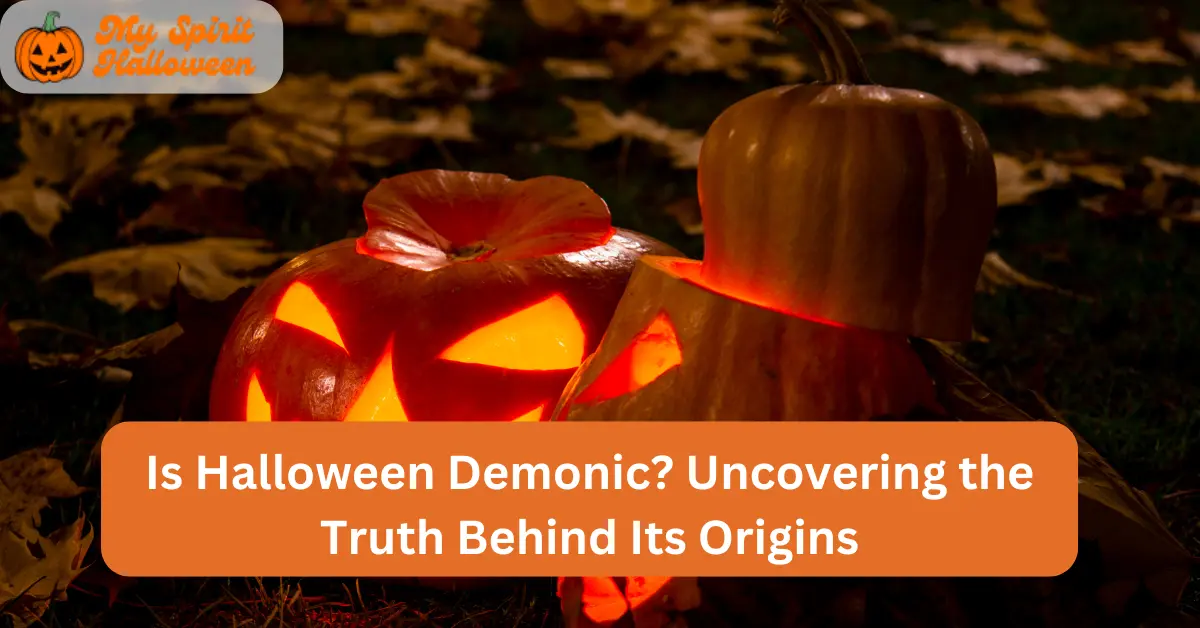
Halloween, a popular celebration enjoyed by millions around the world, often sparks debates over its roots and meaning. Is it merely a fun, spooky holiday, or is there something darker behind the costumes and candy?
The question “Is Halloween demonic?” emerges frequently, particularly from religious communities that question its historical and spiritual origins. For some, Halloween represents a harmless night of fun. For others, it has potential ties to occult practices and pagan rituals that date back thousands of years.
Historical Origins of Halloween
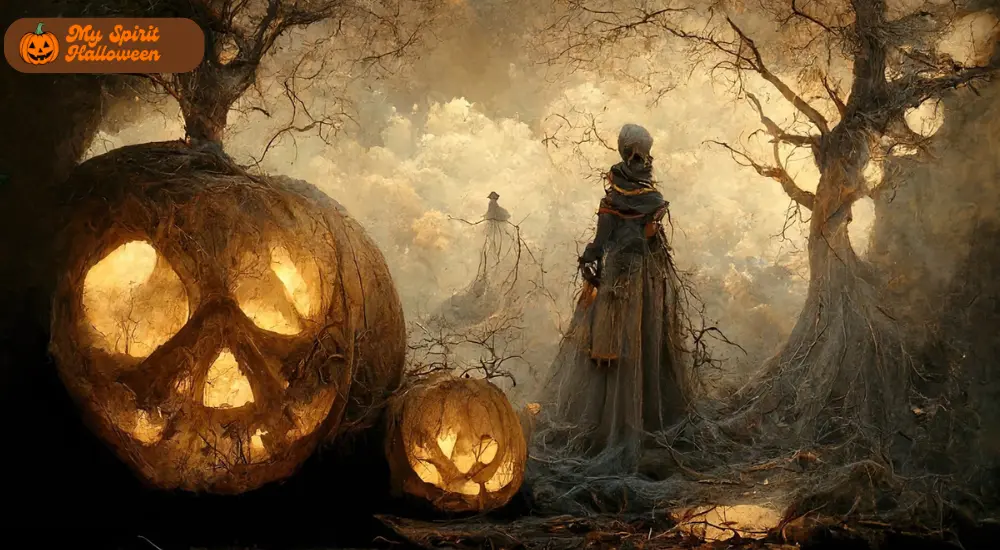
Samhain: The Celtic Festival
To truly understand the origins of Halloween, we need to go back over 2,000 years to the ancient Celtic festival of Samhain (pronounced “sow-in”). The Celts, who lived primarily in what is now Ireland, the United Kingdom, and northern France, celebrated their New Year on November 1.
Samhain marked the end of the harvest season and the beginning of winter, a time associated with death. The Celts believed that on the night before their New Year, the boundary between the living and the dead was blurred. On October 31, they celebrated Samhain, a festival during which they believed the ghosts of the dead returned to earth.
During this festival, it was believed that the presence of spirits made it easier for the Druids, or Celtic priests, to predict the future. This was vital in a world where the upcoming winter could be harsh and unpredictable.
To commemorate the event, Druids built large bonfires where people gathered to burn crops and animals as sacrifices to Celtic deities. Celts also wore costumes, typically consisting of animal heads and skins, to ward off wandering spirits.
Over time, these ancient traditions began to evolve, blending with other cultural and religious influences, especially when the Roman Empire expanded into Celtic territories around 43 A.D.
Roman Influence: Pomona and Feralia
As the Roman Empire spread and conquered Celtic lands, some of the local customs merged with Roman festivals. Two Roman celebrations in particular—Feralia and Pomona—became intertwined with Samhain.
Feralia was a day in late October when Romans commemorated the passing of the dead. Pomona, on the other hand, was the Roman goddess of fruits and trees, and her symbol was the apple. This blending of festivals likely gave rise to the tradition of bobbing for apples, a game that is still played at Halloween parties today.
While these influences may seem innocent, some argue that the pagan elements from both Roman and Celtic origins provide the basis for the belief that Halloween is connected to darker, more demonic practices.
Christian Influence: All Saints’ Day and All Souls’ Day
As Christianity began to spread throughout the Celtic lands, the Church made attempts to replace pagan festivals with Christian holidays. In 609 A.D., Pope Boniface IV established All Saints’ Day, originally celebrated on May 13, as a day to honor Christian martyrs and saints.
In 835 A.D., Pope Gregory III moved the celebration to November 1, intentionally aligning it with Samhain. The night before became known as All Hallows’ Eve, eventually shortened to Halloween.
Later, in 1000 A.D., the Church added All Souls’ Day on November 2, a day to honor all the dead. All Souls’ Day was celebrated similarly to Samhain, with bonfires, parades, and dressing up in costumes as saints, angels, and demons.
This blending of pagan and Christian traditions led to a complex holiday with multiple layers of meaning—religious, cultural, and even supernatural.
As a result, Halloween evolved into a mix of Celtic paganism, Roman customs, and Christian practices, which leads some to wonder if the day carries any lingering traces of the demonic.

Modern Halloween: A Cultural Celebration
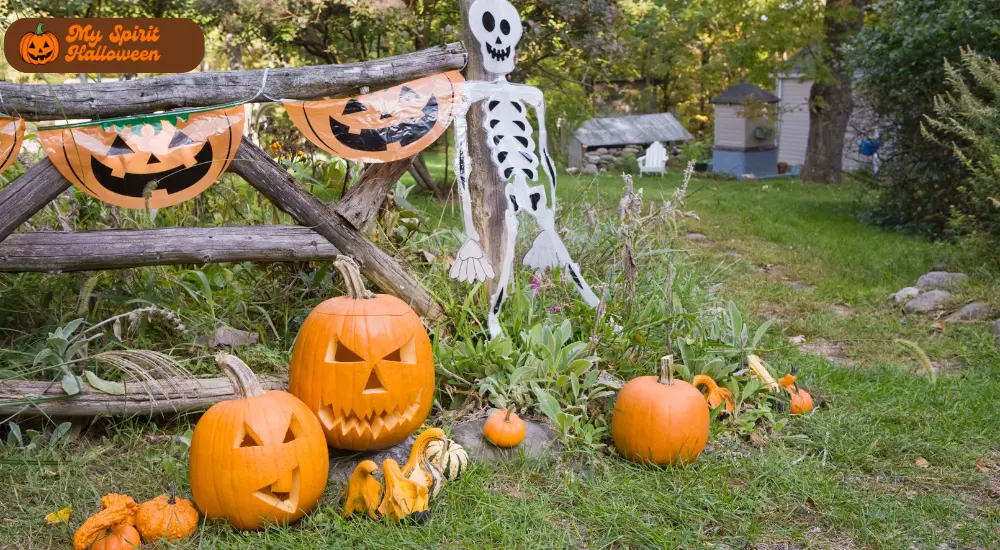
The Shift to Modern Halloween Traditions
By the time Halloween made its way to North America, its focus had shifted significantly from ancient pagan rituals. Irish and Scottish immigrants brought Halloween traditions to the United States in the 19th century.
However, in the new world, Halloween took on a life of its own, moving away from its original spiritual connotations. Instead of focusing on the dead or appeasing spirits, the holiday became more about fun, mischief, and community events. By the early 20th century, Halloween had become an established part of American culture.
Costume-wearing evolved into a lighter, more playful tradition as children began to dress up as fairies, superheroes, and witches. The tradition of trick-or-treating emerged as a way for children to go door-to-door collecting candy from neighbors.
What started as a night of bonfires and honoring the dead morphed into a night of celebration and harmless pranks.
Pumpkin carving, another key modern-day tradition, also has roots in Celtic folklore. Originally, people in Ireland and Scotland carved turnips into lanterns to ward off evil spirits.
When Irish immigrants arrived in America, they found that pumpkins, native to North America, were much easier to carve, giving birth to the iconic jack-o’-lantern.
Is Halloween Still Associated with Paganism?
Even though Halloween has largely shifted into a secular, community-centered holiday, its ancient roots remain a subject of debate. Some Christian groups still regard Halloween as inherently pagan, citing its origins in Samhain and the celebration of the dead.
Others argue that Halloween’s modern incarnation is so far removed from its ancient roots that it no longer holds any spiritual or demonic significance.
However, the commercialization of Halloween has also contributed to its distancing from religious or spiritual meaning. Today, Halloween is a multi-billion-dollar industry, with businesses capitalizing on costumes, decorations, and candy sales.
For many, Halloween is no more than an opportunity for entertainment, parties, and themed events.
Religious Views: Is Halloween Demonic?
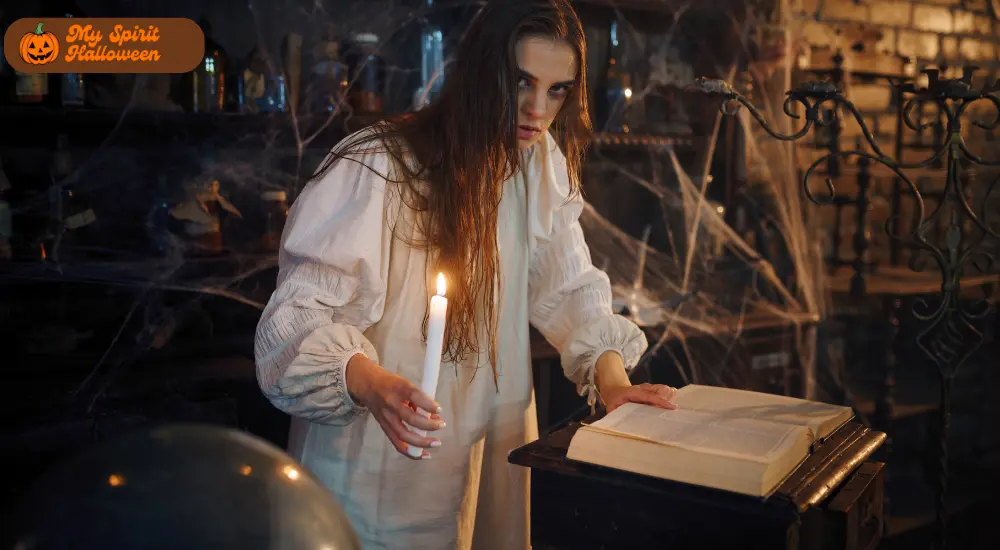
Christian Perspectives on Halloween
The debate around whether Halloween is demonic is most prominent among certain Christian communities. For centuries, some Christians have viewed the holiday with suspicion due to its pagan origins and emphasis on supernatural themes.
While Halloween, in its modern form, seems like an innocent night of fun, various Christian denominations have voiced concerns about its connections to ancient practices involving the dead and spirits.
1. Halloween’s Pagan Roots: A Cause for Concern?
For many Christians who reject Halloween, the holiday’s origin in the festival of Samhain is a significant red flag. They argue that Samhain was a pagan celebration in which the boundaries between the spiritual and physical world were believed to be at their weakest.
The Celts, as mentioned earlier, made offerings to deities and spirits during this time, which some modern Christians interpret as a form of occult or demonic worship.
Christians who hold these views often reference Bible verses that warn against participating in pagan rituals or seeking out contact with spirits. For example, Deuteronomy 18:10-12 states:
“Let no one be found among you who sacrifices their son or daughter in the fire, who practices divination or sorcery, interprets omens, engages in witchcraft, or casts spells, or who is a medium or spiritist or who consults the dead. Anyone who does these things is detestable to the Lord.”
These verses highlight the Bible’s warnings against involvement in anything perceived as occult, which some believe is inherent in Halloween’s origins.
2. Divided Opinions Among Christian Communities
Despite these concerns, many Christian groups take a more relaxed approach to Halloween. They argue that Halloween, as celebrated today, has been stripped of its ancient pagan meaning and is now a harmless cultural tradition.
For these Christians, Halloween is simply a time for children to dress up, have fun, and collect candy, without any ties to spiritual danger. Some churches even host trunk-or-treat events, where children can trick-or-treat in a safe, family-friendly environment.
Still, other Christian denominations encourage their followers to completely avoid Halloween. They see the holiday as an opportunity for Satan and evil forces to gain influence, even if unintentionally.
These groups often emphasize that Christians should instead focus on celebrating All Saints’ Day and All Souls’ Day, as these are holidays meant to honor the faithful departed and Christian martyrs.
3. Acknowledging Differing Views
Overall, opinions about Halloween within the Christian community are deeply divided. While some believers see Halloween as spiritually dangerous, others consider it a cultural event that no longer carries its original pagan significance.
For families who practice Christianity, the decision to celebrate or reject Halloween often comes down to personal conviction, church doctrine, and how they interpret the holiday’s origins.
Other Religious Views on Halloween
While Halloween’s Christian and pagan roots are widely discussed, other religious communities have their own unique perspectives on the holiday. These perspectives further illuminate the complexity of the question, “Is Halloween demonic?”
1. Islam
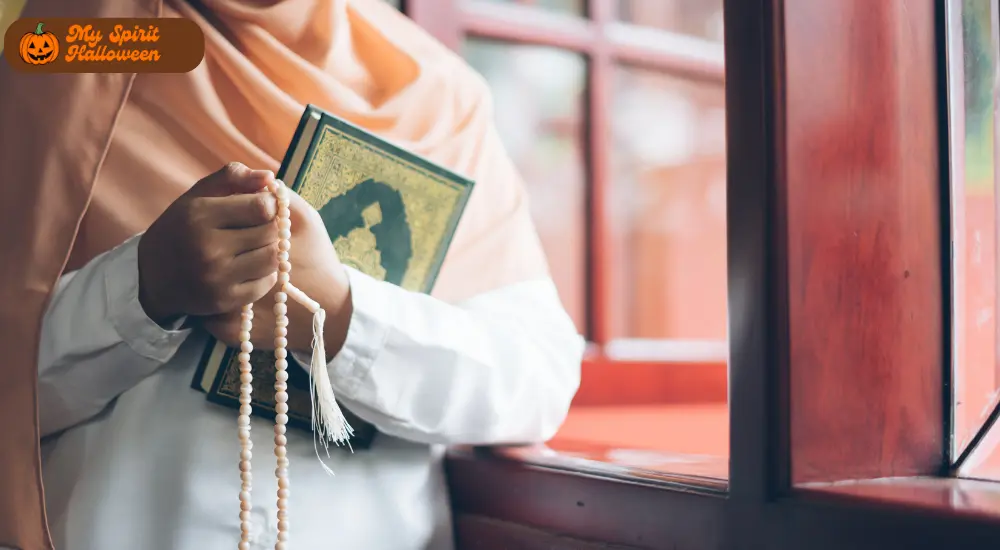
Many Muslims do not celebrate Halloween, as it is seen as a Western or non-Islamic tradition. For some, Halloween’s focus on death, spirits, and the supernatural conflicts with Islamic teachings, which discourage involvement with occult practices.
Furthermore, because Halloween is rooted in Christian and pagan traditions, some Muslims prefer to avoid it altogether.
However, this is not a universal stance within the Muslim community. In countries where Halloween is widely celebrated, some Muslims choose to participate in the festivities for the fun and community aspects, while others may substitute the holiday with Islamic celebrations that focus on family and community.
2. Judaism
Similar to Islam, Jewish views on Halloween vary. In traditional and Orthodox Jewish communities, Halloween is often avoided due to its pagan and Christian associations. Judaism emphasizes clear distinctions between Jewish holidays and other religious or cultural celebrations, so some Jews may view Halloween as a non-Jewish holiday that holds little relevance.
However, in more secular Jewish communities, Halloween can be seen as an American cultural event rather than a religious one. As with other religious groups, individual families often decide based on their own beliefs and cultural context.
Satanism and Halloween: The Truth
One of the most persistent myths surrounding Halloween is its connection to Satanism. Some people believe that Halloween is a day when Satanists or occult practitioners engage in rituals that involve demonic worship or dark magic. However, these claims are largely rooted in misunderstanding and sensationalized portrayals of both Halloween and Satanism.
1. The Role of Media in Perpetuating the Myth
Movies, TV shows, and horror stories have long contributed to the association between Halloween and evil. Images of witches, demons, and the devil are common symbols used in Halloween decorations and pop culture, leading some people to believe that Halloween is, at its core, a celebration of evil forces.
However, there is little evidence to support the idea that Halloween has any intrinsic connection to Satanism. Most Satanist groups, particularly LaVeyan Satanism, do not engage in Halloween-specific rituals.
While they may celebrate Halloween in the same way that many other people do—by dressing up or attending parties—it is not a religious or demonic event for them. In fact, LaVeyan Satanism focuses more on self-empowerment and individualism than on the worship of Satan as a literal being.
2. Dispelling the Fear
It’s important to dispel the fear that Halloween is a night of widespread Satanic rituals or demonic worship. While Halloween may have pagan roots and involve symbols of death and the supernatural, its modern iteration is largely secular and focused on fun.
The idea that Halloween is inherently demonic is a misconception fueled by media portrayals and misunderstandings of different religious practices.
Psychological Perspective: Why Some Believe Halloween is Demonic
The Fear of the Occult
Why do some people believe Halloween is demonic, even when modern celebrations seem so far removed from ancient practices? The answer may lie in the psychology of fear.
Humans have long been fascinated by the unknown, and this curiosity often extends to supernatural phenomena. Halloween, with its emphasis on ghosts, witches, and the dead, taps into these deep-seated fears of the unknown and the afterlife.
Throughout history, fear of the occult has led people to associate certain symbols, practices, or holidays with evil forces. The concept of spirits, demons, and magic—things that are beyond human understanding—has always inspired both fascination and fear.
In a time when Halloween features themes of death, darkness, and the supernatural, it’s not surprising that some people would interpret these elements as demonic.
Media Influence and Misinformation
Another major factor contributing to the belief that Halloween is demonic is the role of media. Halloween horror movies often focus on demonic possession, Satanic rituals, and evil forces, further cementing the idea that Halloween is linked to the occult.
In many horror films, Halloween night is portrayed as a time when spirits roam freely and evil is unleashed, reinforcing fears about the holiday’s supposed darker side.
Misinformation on social media and the internet also plays a significant role. In recent years, conspiracy theories about Halloween and its connection to the occult have spread widely, often citing inaccurate or exaggerated claims.
These conspiracy theories, coupled with the fear of the unknown, contribute to the idea that Halloween is more than just a cultural event—it’s a demonic celebration.
Halloween Around the World: Different Cultural Perspectives
Halloween, as celebrated in the United States and Canada, is often viewed as a night of costumes, candy, and fun-filled activities.
However, the holiday has evolved differently in various parts of the world, and in some regions, it bears little resemblance to its American counterpart.
Understanding how Halloween, or similar celebrations, are observed globally can shed light on its cultural significance and address whether or not it is viewed as demonic or harmful in other traditions.
Mexico’s Day of the Dead (Día de los Muertos)
In Mexico, rather than focusing on Halloween, people celebrate Día de los Muertos, or the Day of the Dead, on November 1 and 2.
Although the holiday shares some thematic elements with Halloween, such as honoring the dead and using skull imagery, Día de los Muertos is fundamentally different in its tone and purpose. Instead of fearing or warding off spirits, families in Mexico welcome the spirits of their deceased loved ones back into their homes.
Altars, known as ofrendas, are created to honor the dead, filled with offerings like flowers, candles, and photographs. Families gather to share memories of those who have passed, and cemeteries are often decorated with vibrant flowers and candles.
The celebration is festive rather than fearful, and it is rooted in the belief that death is a natural part of life, not something to be feared or associated with evil.
Día de los Muertos is not seen as demonic in Mexico but is instead viewed as a joyful remembrance of life and family. The colorful and positive nature of this celebration contrasts sharply with the darker, more macabre themes of Halloween in other parts of the world.
Asia: Ghost Festivals and How They Differ from Halloween
While Halloween is not traditionally celebrated in many Asian countries, several cultures have their own festivals dedicated to honoring or appeasing the dead. One of the most prominent examples is the Hungry Ghost Festival in China, which is celebrated in the seventh month of the lunar calendar.
During the Hungry Ghost Festival, it is believed that the gates of the underworld open, allowing the spirits of the deceased to roam the earth. Families honor their ancestors by offering food, burning paper money (as a form of offering), and lighting incense.
Like Día de los Muertos, the Hungry Ghost Festival is a time to show respect to the dead, but it also incorporates elements of appeasement to prevent mischievous spirits from causing harm.
Though there are some thematic similarities between Halloween and the Hungry Ghost Festival, the latter is more closely tied to traditional religious practices and beliefs about the afterlife. It is not viewed as demonic but rather as a ritual of respect and precaution.
Halloween in the UK and Europe
Halloween’s presence in the UK and other parts of Europe predates its arrival in North America, though it has undergone many changes over the centuries.
In the UK, the holiday is rooted in Celtic traditions, such as Samhain, and still carries elements of those ancient beliefs in some areas. However, much like in the United States, Halloween in the UK today is mostly focused on family fun, costumes, and trick-or-treating.
In other parts of Europe, Halloween is less prominent. Countries like Spain and Italy focus more on All Saints’ Day and All Souls’ Day, which are religious holidays observed on November 1 and 2, respectively.
These days are dedicated to remembering the dead, visiting cemeteries, and attending church services. Though some aspects of Halloween, such as dressing up in costumes, have made their way into European culture, the focus on religious observance remains stronger in many parts of the continent.
For most Europeans, Halloween is a time for fun, and it is not generally considered demonic. However, in regions with a strong Christian presence, the holiday is sometimes viewed with skepticism, especially due to its perceived connections to paganism and the occult.
Australia and New Zealand: A Growing Holiday
In Australia and New Zealand, Halloween is a relatively recent import, but it has been gaining popularity, especially among younger generations.
While some older Australians and New Zealanders view Halloween as an American holiday with no place in their culture, many families have embraced it for its fun and light-hearted nature.
In both countries, the focus is primarily on costumes, parties, and trick-or-treating, much like in the United States. Halloween is not widely associated with religious or spiritual significance in these regions, and there is little to no emphasis on its pagan origins.
As such, the belief that Halloween is demonic is not prevalent, and most participants see it as a fun, social event.
Should Halloween Be Celebrated?
The question of whether Halloween should be celebrated often arises, particularly among families who hold religious or cultural concerns.
While some may view the holiday as harmless, others may believe it promotes negative influences. Here, we’ll explore the pros and cons of celebrating Halloween and offer guidance on how families can navigate their decisions.
Is Halloween Harmful or Harmless?
Arguments Against Halloween
Many people who oppose Halloween point to its origins in paganism and its focus on the supernatural as reasons for concern.
For those who adhere to strict religious views, Halloween’s portrayal of witches, demons, and ghosts is problematic, as these symbols can be seen as glorifying evil or promoting a fascination with the occult.
Some parents worry about the impact of Halloween on young children, particularly when it comes to the violent or frightening imagery associated with the holiday.
From gory costumes to horror movies, Halloween can sometimes take on a darker tone that may not align with certain family values. Additionally, some parents express concerns about the risks associated with trick-or-treating, such as safety issues or unhealthy amounts of candy consumption.
Arguments for Halloween
On the other hand, many people argue that Halloween, in its modern form, is a fun, creative, and community-oriented event that poses no real harm.
For most families, Halloween is an opportunity for children to express themselves through costumes, socialize with friends and neighbors, and enjoy a night of harmless fun.
Additionally, many communities organize family-friendly Halloween events, such as pumpkin patches, fall festivals, and costume parties, which offer safe alternatives to traditional trick-or-treating.
These events often emphasize the light-hearted and imaginative aspects of Halloween rather than its spooky or supernatural elements.
How Families Can Choose to Celebrate
For families who are concerned about the pagan or occult aspects of Halloween, there are plenty of ways to celebrate the holiday without compromising personal beliefs.
One option is to participate in church-sponsored events, such as harvest festivals or trunk-or-treat nights, which offer fun, festive alternatives that focus on community rather than on supernatural themes.
Families can also choose to make Halloween about creativity and togetherness by focusing on activities like pumpkin carving, costume-making, and family-friendly Halloween movie nights. By putting the emphasis on family traditions, Halloween can be enjoyed in a way that feels positive and meaningful.
Is Halloween Really Dangerous?
Another common concern about Halloween is that it poses a danger, whether from crime, accidents, or spiritual harm. In reality, the majority of Halloween-related dangers are related to physical safety, such as traffic accidents, or, in rare cases, tainted candy. However, with proper precautions, these risks can be minimized.
From a spiritual perspective, it’s important to remember that Halloween’s modern form is largely secular. While it’s true that Halloween incorporates symbols of death and the supernatural, it is no longer associated with the religious or spiritual practices of its ancient past.
For most participants, Halloween is simply a night of fun, and there is no evidence to suggest that it poses any real spiritual danger.
Conclusion
In answering the question, “Is Halloween demonic?” it’s essential to consider the historical, cultural, and religious contexts in which Halloween has evolved.
While the holiday has its roots in ancient Celtic paganism, its modern form has diverged significantly from these origins. Today, Halloween is primarily a secular, commercial celebration centered on costumes, candy, and community fun.
For those who view Halloween as problematic, whether due to religious concerns or fears of its association with the supernatural, the holiday can be adapted to fit personal beliefs and values.
There are countless ways to celebrate Halloween that focus on creativity, family, and togetherness, rather than on the darker aspects of the holiday.
Ultimately, whether or not Halloween is demonic depends on individual interpretation. For many, it is a harmless cultural event.
For others, its ancient origins and symbolism may raise concerns. By understanding the history, evolution, and varying perspectives on Halloween, families can make informed decisions about how to engage with the holiday in a way that feels right for them.
FAQs
Halloween originated from the ancient Celtic festival Samhain, a celebration marking the end of the harvest and the beginning of winter, during which Celts believed spirits of the dead returned to earth.
Not all Christians believe Halloween is demonic. Opinions vary widely; some see it as a harmless cultural celebration, while others reject it due to its pagan roots.
No, Halloween does not have direct ties to Satanism. While modern pop culture sometimes associates Halloween with demonic imagery, Satanism as a religious movement does not claim Halloween as a significant holiday.
Halloween is generally not dangerous if celebrated responsibly. Most concerns are related to physical safety (e.g., traffic accidents or unhealthy candy consumption), and there is no solid evidence to suggest it poses spiritual harm.
Families can celebrate Halloween in creative, community-focused ways such as pumpkin carving, family movie nights, or attending fall festivals and church
Related Post
- Halloween Crested Gecko
- Halloween Eve Pranking Holiday
- Best Free Halloween Crochet Patterns for Beginners, Kids, and Adults
- DIY Halloween Archway Ideas
- Halloween STEM Activities


